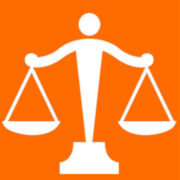Best Toxic Tort Lawyers in France
Share your needs with us, get contacted by law firms.
Free. Takes 2 min.
Or refine your search by selecting a city:
List of the best lawyers in France
About Toxic Tort Law in France
Toxic Tort law in France refers to legal claims that arise from exposure to harmful substances or environmental pollutants. These substances can cause health issues, property damage, or economic losses. Individuals who have been affected by toxic exposures may seek compensation through litigation. French law provides legal remedies to hold responsible parties accountable for damages caused by toxic substances.
Why You May Need a Lawyer
You may need a lawyer in Toxic Tort cases in France if you have been exposed to harmful substances and suffered health issues, property damage, or financial losses as a result. A lawyer can help you understand your legal rights, gather evidence to support your claim, negotiate with responsible parties, and represent you in court if necessary. Toxic Tort cases can be complex and require specialized legal expertise to ensure a successful outcome.
Local Laws Overview
In France, Toxic Tort cases are governed by various environmental laws and regulations, including the Environmental Code and the Civil Code. These laws establish liability for pollution and environmental harm, as well as procedures for compensation and cleanup. French courts have jurisdiction to hear Toxic Tort cases and may award damages to affected individuals based on the extent of harm caused by toxic exposures.
Frequently Asked Questions
1. What is the legal definition of toxic tort in France?
Toxic tort in France refers to civil claims that arise from exposure to toxic substances, such as chemicals, pollutants, or hazardous materials, that cause harm to individuals or property.
2. Who can be held liable in a toxic tort case in France?
In France, liability for toxic exposures may fall on manufacturers, distributors, employers, landowners, or polluters who are responsible for releasing harmful substances into the environment.
3. What types of damages can be awarded in a toxic tort case in France?
Damages in Toxic Tort cases in France may include compensation for medical expenses, lost income, property damage, pain and suffering, and punitive damages in cases of willful misconduct.
4. What is the statute of limitations for filing a toxic tort claim in France?
The statute of limitations for toxic tort claims in France is generally 5 years from the date when the harm was discovered or should have been discovered.
5. How can I prove that I have been exposed to toxic substances in a toxic tort case?
You can prove exposure to toxic substances through medical records, expert testimony, environmental testing, witness statements, and other evidence that establishes a causal link between the harmful substance and your injuries.
6. Is it necessary to prove fault in a toxic tort case in France?
While it may be necessary to establish fault or negligence on the part of the responsible party in a toxic tort case, strict liability laws in France may also hold parties liable for harm caused by hazardous substances without proof of fault.
7. Can I seek compensation for emotional distress in a toxic tort case in France?
Yes, you may be able to seek compensation for emotional distress, mental anguish, and other intangible damages resulting from toxic exposure in France.
8. How long does it take to resolve a toxic tort case in France?
The timeline for resolving a toxic tort case in France may vary depending on the complexity of the case, the amount of evidence involved, the willingness of parties to settle, and the court's docket. Some cases may be resolved through settlement negotiations, while others may proceed to trial and appeal.
9. What are the potential defenses that a defendant may raise in a toxic tort case in France?
Defendants in toxic tort cases in France may raise defenses such as lack of causation, contributory negligence, assumption of risk, statutory immunities, or the expiration of the statute of limitations.
10. Can I file a class action lawsuit for toxic exposure in France?
Class action lawsuits are not as common in France as in some other jurisdictions, but collective actions or group litigation may be possible in certain cases where multiple individuals have been harmed by the same toxic exposure.
Additional Resources
For additional information on Toxic Tort law in France, you may consult the Ministry of Ecological Transition, the French Agency for Food, Environmental and Occupational Health & Safety (ANSES), or seek guidance from local environmental law firms specializing in toxic exposure cases.
Next Steps
If you believe you have been harmed by toxic exposure in France, it is advisable to consult with a qualified attorney who has experience in handling Toxic Tort cases. Your lawyer can assess the merits of your claim, advise you on the legal options available, and guide you through the process of seeking compensation for your injuries and losses.
Lawzana helps you find the best lawyers and law firms in France through a curated and pre-screened list of qualified legal professionals. Our platform offers rankings and detailed profiles of attorneys and law firms, allowing you to compare based on practice areas, including Toxic Tort, experience, and client feedback.
Each profile includes a description of the firm's areas of practice, client reviews, team members and partners, year of establishment, spoken languages, office locations, contact information, social media presence, and any published articles or resources. Most firms on our platform speak English and are experienced in both local and international legal matters.
Get a quote from top-rated law firms in France — quickly, securely, and without unnecessary hassle.
Disclaimer:
The information provided on this page is for general informational purposes only and does not constitute legal advice. While we strive to ensure the accuracy and relevance of the content, legal information may change over time, and interpretations of the law can vary. You should always consult with a qualified legal professional for advice specific to your situation.
We disclaim all liability for actions taken or not taken based on the content of this page. If you believe any information is incorrect or outdated, please contact us, and we will review and update it where appropriate.
Browse toxic tort law firms by city in France
Refine your search by selecting a city.
















